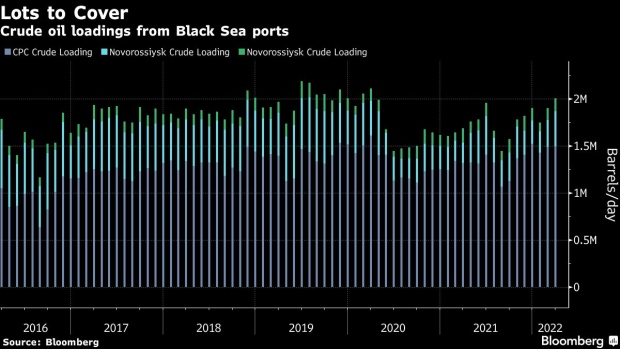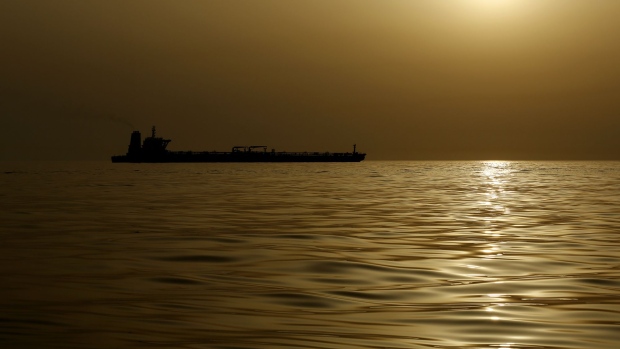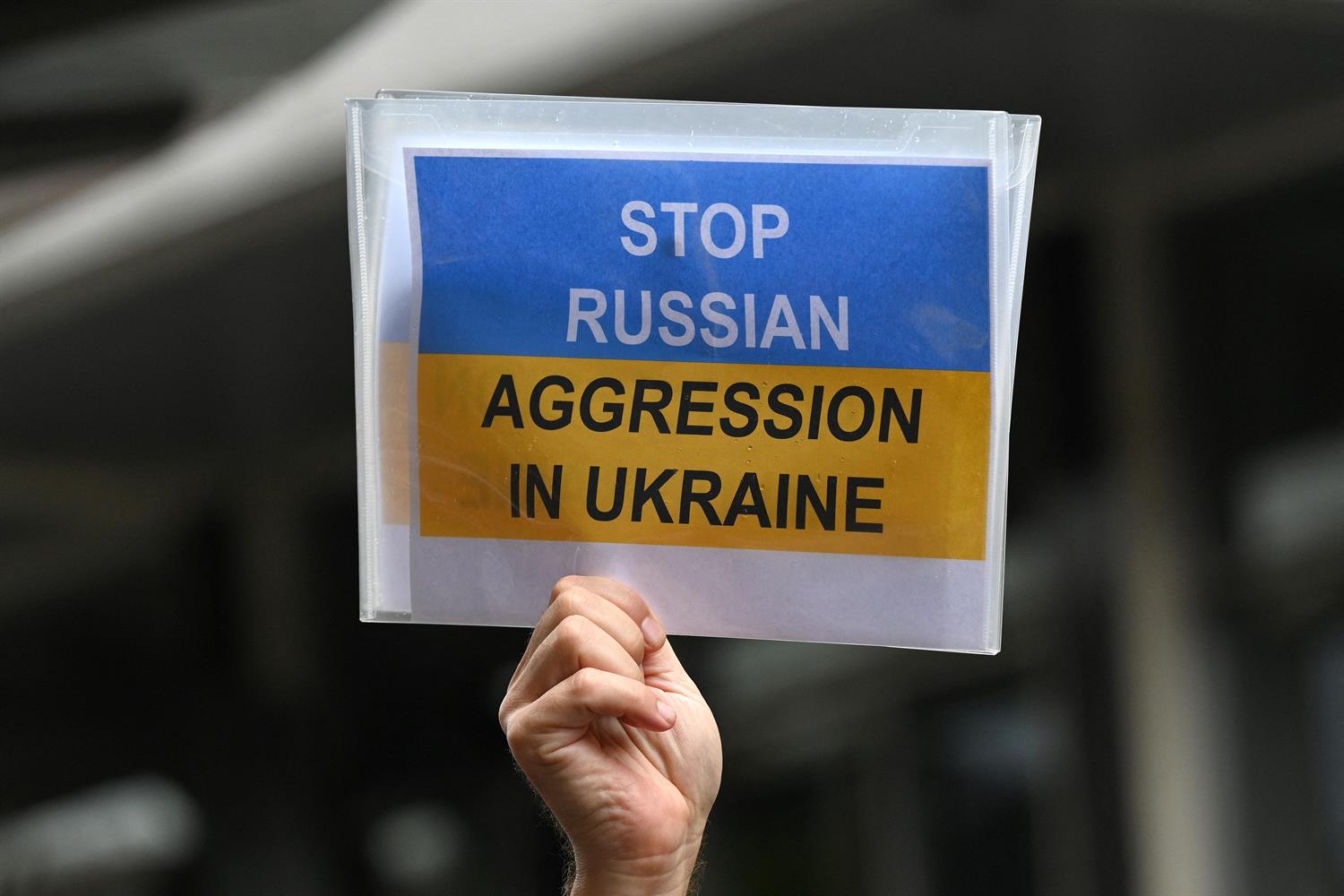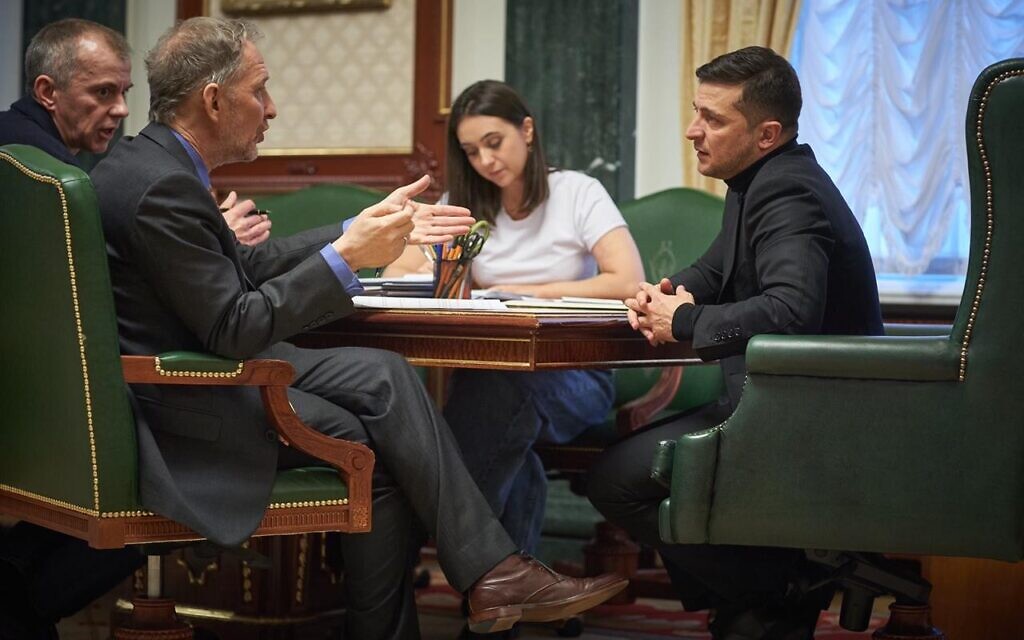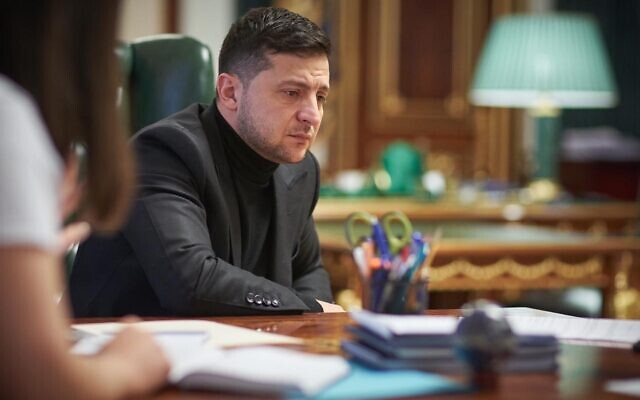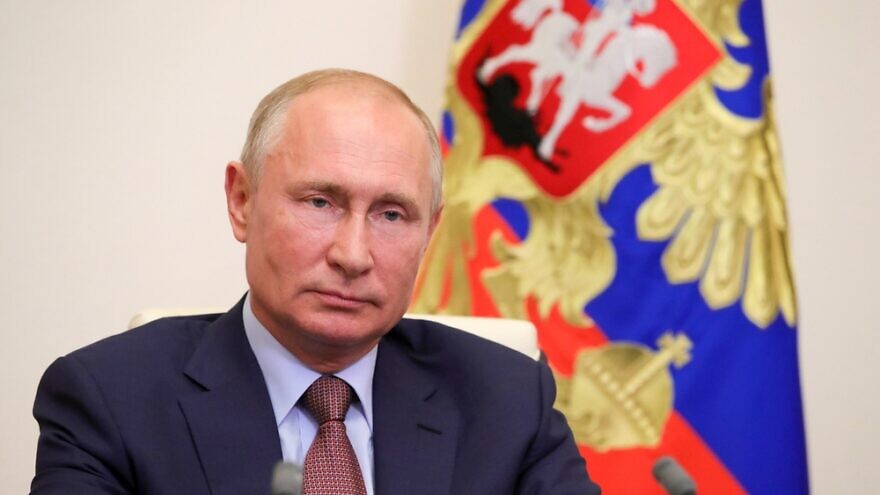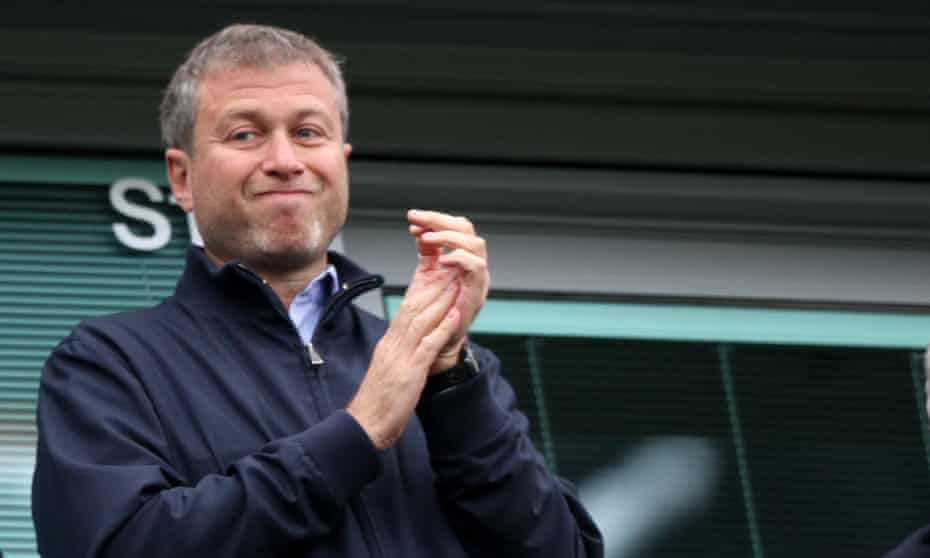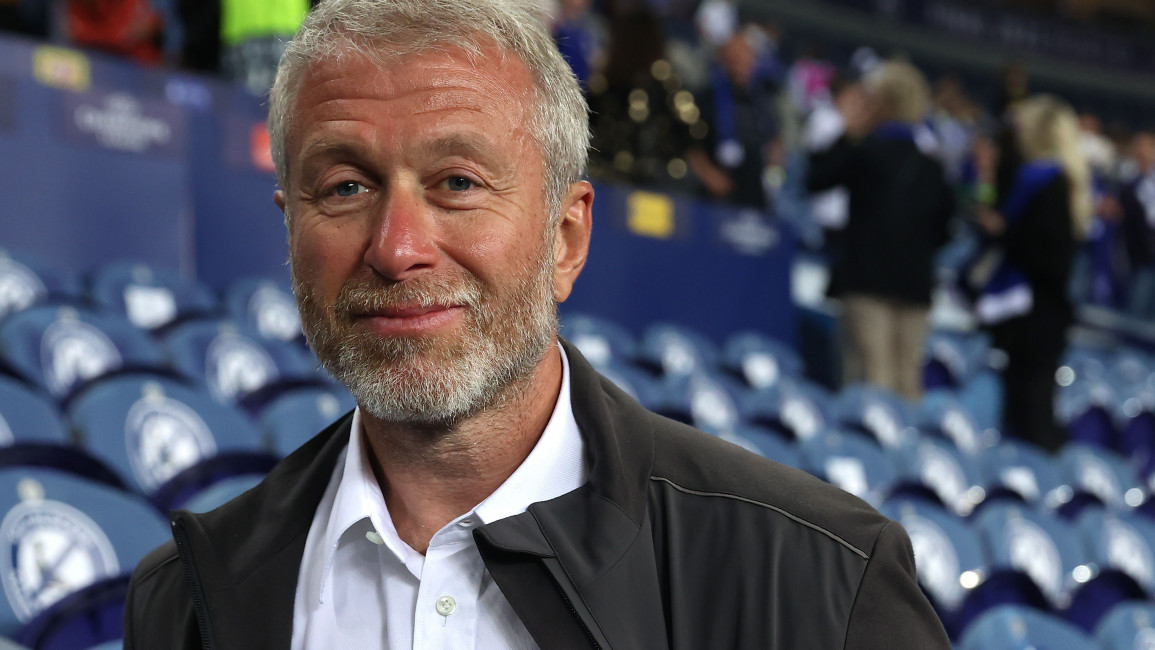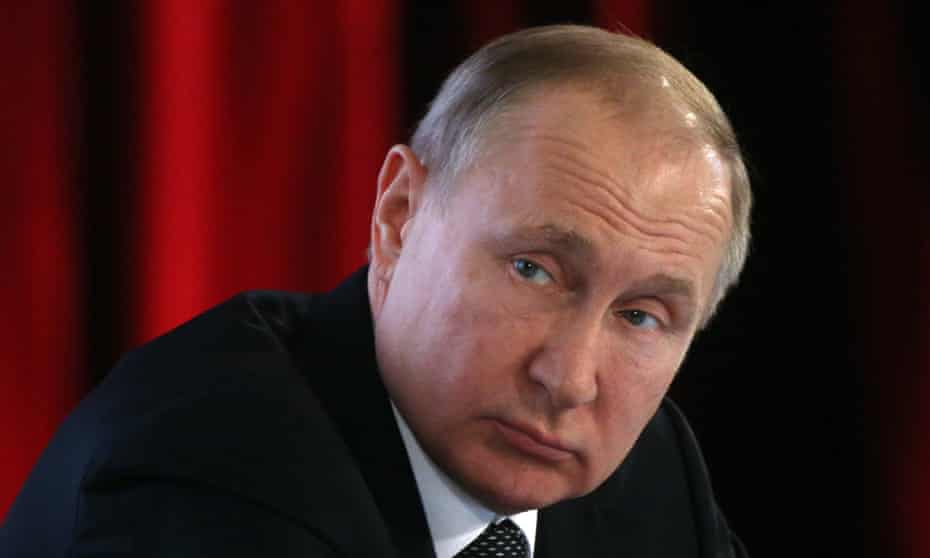RT news channel in spotlight in UK over pro-Russia slant on Ukraine crisis
Calls for channel that is describing invasion as ‘special military operation’ to have licence revoked
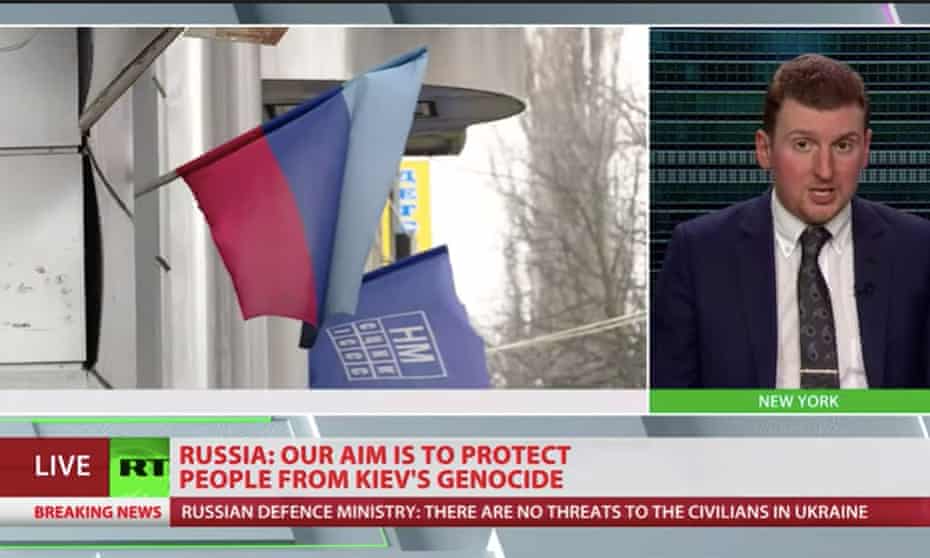
Jim Waterson Media editor
THE GUARDIAN
As Russian troops pushed into Ukraine on Thursday, viewers of the RT news channel learned a new vocabulary.
Rather than an invasion, the Russian actions were described on air as a “special military operation”. Instead of seizing territory from another nation, viewers were told that troops were trying to “liberate” land from Ukraine on behalf of two Russian-backed breakaway states.
And if there was any doubt about the justification used by Vladimir Putin for his war, then RT’s British presenter Rory Suchet – the son of the former ITN journalist John Suchet – explained to viewers that the objective was “to defend the Donbas” in the face of Ukrainian aggression.
The Kremlin-funded rolling news channel, which has long delighted in its own pariah status, has again come under intense scrutiny in the UK for its willingness to follow the narrative of the Russian government. The Labour leader, Sir Keir Starmer, demanded RT’s broadcast licence be revoked, telling the House of Commons the organisation once known as Russia Today was Putin’s “personal propaganda tool”. He added: “I can see no reason why it should be allowed to continue to broadcast in this country.”
However, this has also raised concerns about opening up a tit-for-tat media expulsion battle with Russia, which last year kicked out the BBC’s Russia correspondent Sarah Rainsford.
“There is too much focus on the television channel – its impact is minimal,” said Prof Stephen Hutchings of the University of Manchester, who is writing a book on Russian media that focuses on RT. “The television channel almost has symbolic value. They can’t claim to be an international broadcaster on a par with CNN and BBC without a television channel. But really their most impactful output is online and on social media and YouTube.”
The media regulator, Ofcom, which in extreme circumstances can revoke the licences of television channels, is actively monitoring RT’s output for potential breaches of the broadcasting code. But there is no ban on partisan current affairs broadcasting in the UK, as long viewers are also exposed to some alternative viewpoints – the same rule that allows a channel such as GB News to broadcast with a rightwing slant.
The Ofcom chief executive, Melanie Dawes, made clear this week that while RT could not broadcast “one-sided propaganda” on Ukraine, it was “acceptable for broadcasters to present issues from a particular perspective provided that alternative views and opinions are also represented”.
It was RT’s failure to meet this standard in its coverage of the Salisbury poisonings that led to RT being fined £200,000 by Ofcom in 2019 – but deciding where to draw the line is an art rather than a science. The regulator also takes into account viewer expectations of a channel when considering how to enforce its rules – essentially making the assumption that if you are watching RT then you are expecting to see a strong pro-Russian viewpoint reflected in its coverage.
There are also bigger forces at play. The expectation is that if RT is taken off air in the UK, then the BBC’s Russian services will be quickly binned by the Kremlin – the same fate that befell the German public broadcaster Deutsche Welle when the German media regulator took RT off air earlier this month. In any eventuality, there would be nothing to stop RT continuing to produce online content for a British audience, free from regulation, while claiming to have been silenced.
This has led to BBC sources raising concerns that removing RT’s broadcast licence would be unhelpful, given how few viewers RT has in the UK. The channel took the unusual decision to pull out of the Barb audience rating system in late 2019. However, RT’s final viewing figures suggested it was only reaching about 79,000 Britons a day and the average viewer watched for less than a minute – giving it an audience comparable with an obscure satellite film channel.
It has increasingly become a pariah outlet that struggles to book mainstream politicians and guests. The former Scottish first minister Alex Salmond, who has hosted a show on RT since 2017, this week said he would stop making the programme “until peace is re-established”.
Hutchings said his research found RT often carried more diverse viewpoints than its critics acknowledged – but that this changed at moments of crisis. “When Russia’s interests are perceived to be at stake everyone comes behind the central approved narrative. A small group of elite media executives meet with the Kremlin on a weekly basis and they agree the broad agenda and then that’s fed down to the head of news who will translate that into a set of narratives.”
He said that while the “Kremlin is determining the narrative” of RT, if Ofcom suspended the channel’s British broadcast licence due to political pressure then it could be counterproductive. “It’s playing the Russian game. We are a society that claims to follow due process.”



